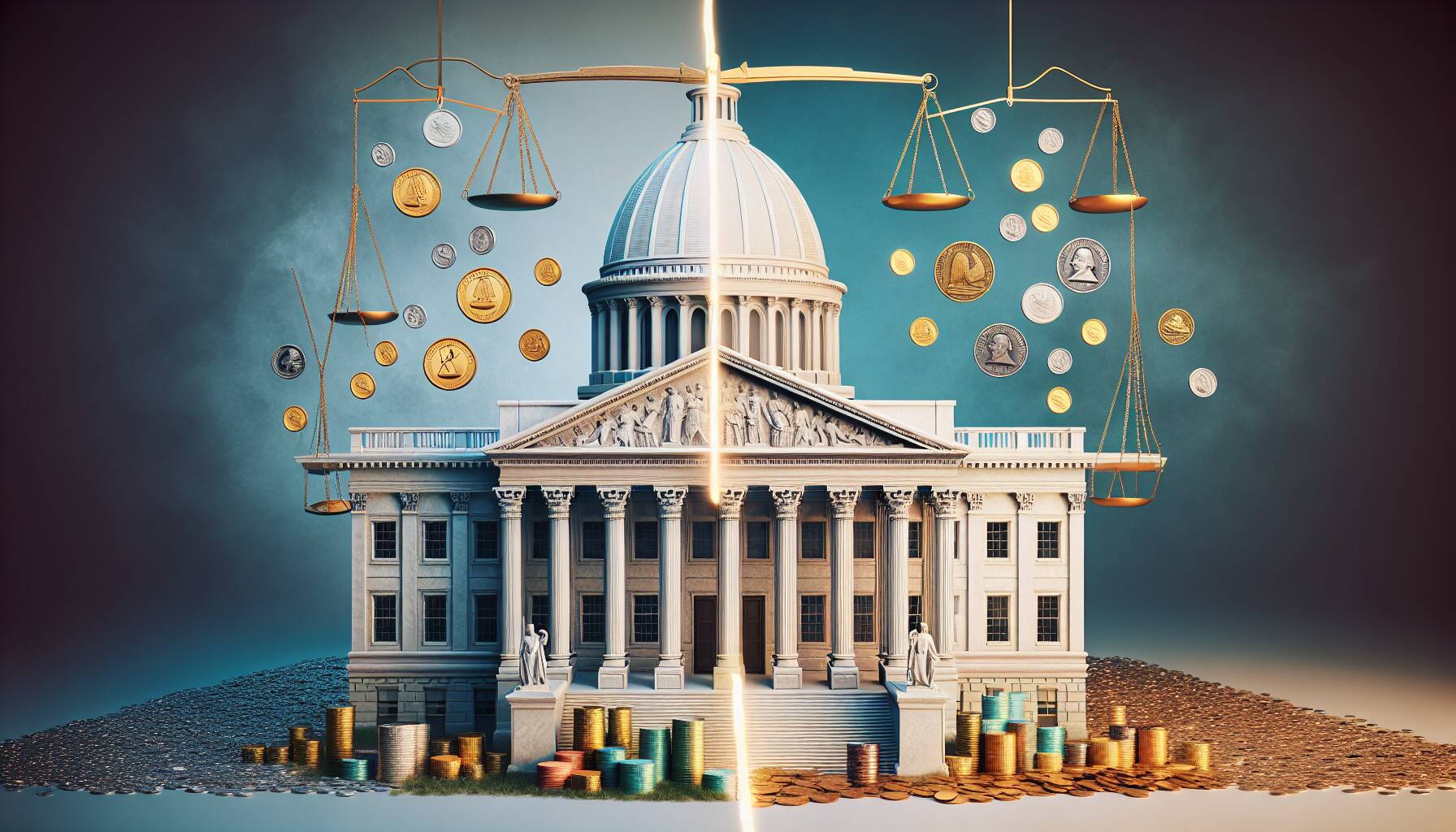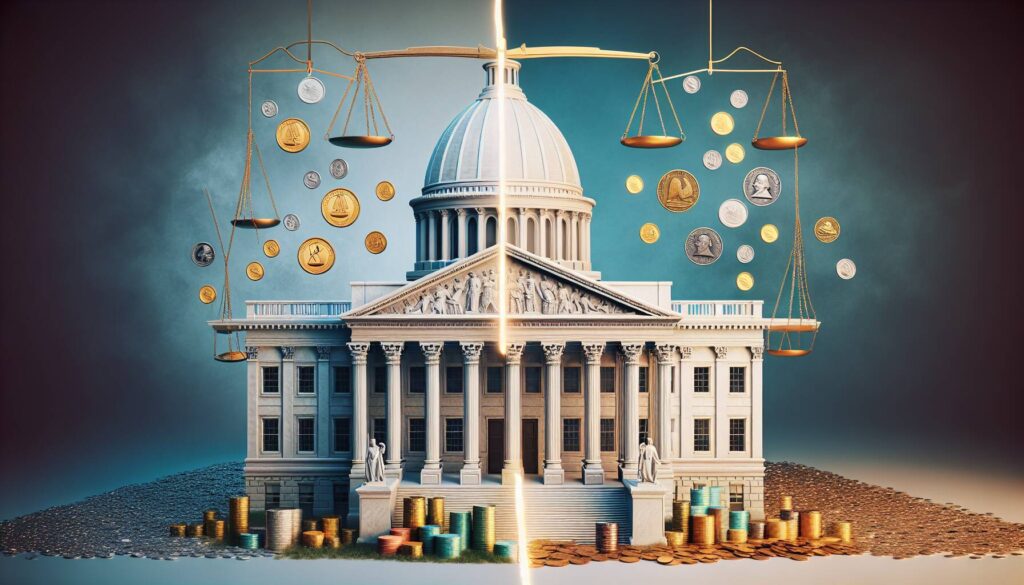The U.S. Senate is on the brink of a significant vote regarding the regulation of stablecoins, a move that could mark a pivotal moment in cryptocurrency legislation. However, Representative French Hill has indicated that there are notable differences between the Senate’s proposed bill and a similar measure currently being discussed in the House of Representatives. These discrepancies will need to be addressed prior to finalization.
Hill, who chairs the House Financial Services Committee, spoke about the ongoing negotiations at an Atlantic Council event, highlighting that while the bills share substantial similarities, the variations are critical and require clarification. Notably, the House bill includes stricter regulations concerning foreign stablecoin issuers, aiming to ensure that they comply with U.S. laws, particularly regarding Tether’s USDT, a leading global token.
“You can either be registered in the U.S. and be a U.S. company under the stablecoin law and you are fully compliant, or you are in a jurisdiction recognized by the U.S. to have a substantially similar regime and enforcement,” said Hill.
Additionally, the two chambers diverge in their approaches to allowing non-financial companies to issue stablecoins, a topic that reflects broader concerns about the interplay between banking and commerce. The House version of the legislation proposes that such companies can operate under the authority of the Office of the Comptroller of the Currency, while the Senate’s framework suggests a ban on public entities from issuing these financial instruments.
As the Senate advances its stablecoin legislation, known as the Guiding and Establishing National Innovation for U.S. Stablecoins (GENIUS) Act, it remains in a state of negotiation, causing some uncertainty about its final form and the potential for a cohesive agreement between the chambers. Meanwhile, Hill expressed hope for productive collaboration, acknowledging the stalled progress in the Senate on broader cryptocurrency regulations.
With bipartisan support for the stablecoin measures, the legislative environment appears promising, yet the path to a finalized law requires both chambers to reconcile their differences effectively. As discussions unfold, the potential involvement of political figures, including past President Trump, adds a layer of complexity to the already intricate landscape of cryptocurrency regulation.

U.S. Senate Stablecoin Legislation Developments
Key points regarding the current status and implications of the U.S. Senate’s efforts to regulate stablecoins:
- Approaching Final Vote: The Senate may soon vote on stablecoin regulation, marking significant progress in crypto legislation.
- Key Differences between Bills:
- The Senate and House bills have substantial similarities but notable differences, particularly on reciprocity of international regulations.
- The House’s stricter requirements could impact foreign stablecoin issuers, affecting market dynamics.
- Regulatory Pathway:
- The House bill offers a clearer regulatory framework for stablecoin issuers based on their business models.
- Different approaches to non-financial companies potentially issuing stablecoins could reshape regulatory boundaries in finance.
- Impact on Financial System: Concerns over tech giants participating in stablecoin issuance may affect public trust and traditional banking relationships.
- Legislative Process: Both Senate and House must agree on identical bill versions, indicating potential delays and negotiations ahead.
- Bipartisan Support: Recent committee support highlights a strong bipartisan desire to advance stablecoin regulation despite previous delays.
- Political Considerations: Influences from political figures, particularly Trump, could complicate the stablecoin legislative landscape.
These developments could significantly impact both market participants and consumers, as new regulations may shape how stablecoins function within the broader financial system.
Stablecoin Legislation: A Tale of Two Bills
The ongoing dialogue surrounding stablecoin regulation in the U.S. Senate and House reveals intriguing dynamics that could shape the future of crypto legislation. Representative French Hill highlighted significant variations between the Senate’s GENIUS Act and the House’s proposed framework, showcasing both competitive advantages and challenges for lawmakers and industry players alike.
One of the notable strengths of the House bill is its stringent reciprocity requirements for international stablecoin issuers. By mandating compliance from foreign companies wishing to operate with U.S. consumers, it aims to safeguard American investors and maintain a level playing field. This could establish the House’s approach as a more protective measure, appealing to those concerned about the potential pitfalls of loosely regulated foreign tokens like Tether’s USDT. Conversely, the Senate’s relatively more lenient regulations might be viewed as a drawback, potentially allowing for a wider array of issuers but less oversight.
On the regulation front, the House’s clarity in delineating regulatory authority is another advantage. By providing a cleaner pathway for determining whether the state or federal government has jurisdiction, it simplifies compliance for issuers. In contrast, the Senate’s ambiguity in its framework may cause confusion and anxiety among companies navigating these waters, creating potential delays and complications in their business strategies.
Furthermore, the contrasting approaches to non-financial companies issuing stablecoins may benefit traditional financial institutions while raising concerns among tech firms. The House’s endorsement of tech giants to create stablecoins could democratize access and innovation in the financial sector, yet it has drawn criticism for potentially exacerbating the existing divide between banking and commerce. The Senate’s proposal to limit this practice could satisfy regulatory concerns but risks stifling innovation from non-traditional players.
Both bills face scrutiny from critics who argue that the safeguards against illicit activities are insufficient. The Senate was momentarily stalled by Democratic objections, emphasizing the importance of bipartisan support in navigating these legislative waters. This aspect highlights the delicate balance lawmakers must achieve to foster a conducive regulatory environment without impeding progress. Stakeholders, ranging from fintech startups to established banks, stand to benefit significantly if these regulatory frameworks are streamlined.
However, the political undertones brought about by past presidential involvement in crypto pursuits add complexity to these discussions. French Hill’s acknowledgment of the distractions stemming from former President Trump’s connection to stablecoins illustrates the potential for these issues to divert attention from pressing regulatory realities. Controversies surrounding individual agendas could create hurdles for legislation, complicating the landscape for all concerned parties.

















